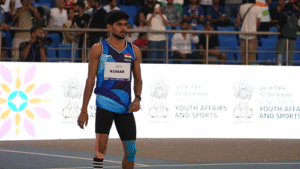Amal Dutta is considered one of the most influential figures in Indian football, particularly for his pioneering role in coaching. He is widely regarded as India’s first professional football coach, and his career, which began in 1963, made a significant impact on the footballing landscape of India, especially in Kolkata, the heart of Indian football.
1. First Professional Coach:
Amal Dutta is credited with being India’s first professional football coach. His approach to football was rooted in modern coaching techniques and tactical discipline, which was quite revolutionary for Indian football at the time.
His coaching philosophy was focused on improving the technical and tactical aspects of the game, something that was not as commonly emphasized in Indian football during that era.
2. Coaching East Bengal (1963 Onwards):
Amal Dutta’s coaching career began with East Bengal in 1963, one of the most successful and storied football clubs in Kolkata and India.
His time at East Bengal helped shape the club’s future by introducing more structured training methods and focusing on building a strong, disciplined team.
Dutta’s efforts contributed significantly to the club’s success during the 1960s and 1970s.
3. Coaching Mohun Bagan:
Amal Dutta went on to coach Mohun Bagan, another giant of Kolkata football. Mohun Bagan and East Bengal have one of the fiercest rivalries in Indian football, and Dutta’s ability to coach both clubs at different times is a testament to his tactical prowess and understanding of the game.
His stint at Mohun Bagan was marked by a more disciplined approach to the game, which helped the club achieve better results and performances on the field.
4. Coaching Mohammedan Sporting (Dhaka):
Dutta’s coaching career wasn’t just limited to Kolkata-based clubs. He also had a notable tenure with Mohammedan Sporting, a major club in Dhaka (Bangladesh), expanding his influence beyond India.
His time in Dhaka saw him introduce modern coaching techniques to the Bangladeshi football scene, and his leadership helped raise the profile of Mohammedan Sporting during the period.
5. Influence on Indian Football:
Amal Dutta’s contributions to Indian football went beyond club-level achievements. He was instrumental in shaping the coaching philosophy in Indian football, focusing on tactical discipline, physical conditioning, and technical skills.
His work helped bridge the gap between traditional coaching methods and the more modern approaches that were gaining popularity internationally.
6. Legacy as a Coach:
Amal Dutta’s coaching legacy extends well beyond his time with these clubs. He is remembered as a pioneer in professional football coaching in India. His dedication to bringing a more scientific approach to football has had a long-lasting influence on how coaching is approached in the country today.
Dutta also contributed to Indian football’s tactical development, often being one of the first to introduce European techniques and coaching methodologies to Indian players.
Success with East Bengal and Mohun Bagan: Under Dutta’s coaching, both clubs achieved domestic success and helped set new standards for tactical play in Indian football.
Increased Professionalism: As India’s first professional coach, Dutta was a driving force in transitioning Indian football to a more professional and organized structure, helping to elevate the game in Kolkata and beyond.
Contribution to Bengali Football Culture: Dutta’s coaching methods influenced not just his teams but also the culture of football in Kolkata, where football is more than just a sport — it’s a way of life.
Amal Dutta’s role as India’s first professional football coach was pivotal in the evolution of Indian football. His stints with East Bengal, Mohun Bagan, and Mohammedan Sporting helped raise the standards of coaching in India, and his emphasis on modern, professional approaches to the game left an indelible mark on the sport. His legacy continues to inspire coaches and players in India, and his contribution to the growth of Indian football remains immense.







